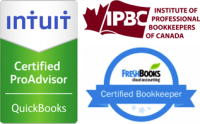With tax season right around the corner it is important that you have a good understanding of the different types of accounts that may be offered to you with promises of saving you money on your taxes.
The most commonly mentioned accounts (and the ones we will be discussing in detail) are RRSP’s, RESP’s and TFSA’s and depending on your situation these accounts can have a variety of tax implications or savings.
Due to the fact that the person selling you the account does not know your personal tax situation they often do not take these implications into consideration and only note possible savings. We recommend you ask a third party tax specialist to advise you on your investments before you commit.
Over the course of this month we will provide you with an explanation of the different types of accounts, the pro’s and con’s of each account and an overview of who will benefit from each one.
Registered Retirement Savings Plan (RRSP)
What is an RRSP?
An RRSP is a tax sheltered account that has been created by the government as an incentive to encourage people to start saving money for their retirement. The money invested in the account and any interest earned is not taxed until the funds are withdrawn when you retire.
The belief is that when you are of retirement age your taxable income will be less than it is now. Therefore you will be in a lower tax bracket when you withdraw the money which will provide tax savings. Additionally because your contributions reduce your income each year you should be paying less tax each year.
In addition to this any annual contributions you make prior to the RRSP deadline reduce your taxable income (the RRSP deadline for 2013’s tax year is February 1st 2014).
Pro’s and Con’s
Pro- You can use your RRSP account to purchase your first home, or go back to school without being taxed on the money. But you need to eventually re-contribute it back into RRSP’s. Essentially, you are borrowing money from yourself that you must repay.
Con- If you withdraw money from your RRSP before retirement (with the exception of the reasons listed under pro’s) the amount you withdraw will be added to your yearly earnings which may place you in a higher tax bracket
Who is a good candidate for an RRSP?
Individuals who are employed.
Depending on your annual income your RRSP contributions can move you into a lower tax bracket. This will provide you a with an income tax refund. The best thing to do with your refund (although it’s not very exciting…) is to buy more RRSP’s.
Who is not necessarily a good candidate for an RRSP?
Quite simply self employed individuals.
Although RRSP’s reduce your taxable income dollar for dollar. However, they DO NOT REDUCE YOUR TAX LIABILITY DOLLAR FOR DOLLAR.
Self employed individuals will always have a balance owing at the end of the year (which is a good thing because it means that your business is going well, if you don’t have a balance owing then you should probably reevaluate your business plan). This means that before you put your savings into an RRSP you need to make sure that you have enough money in your account to contribute AND pay off the tax man at the end of the year.
If you are self employed we recommend that you do not talk to your banker/investment advisor about RRSP’s until you have met with a tax specialist. A tax specialist will offer you a non-biased opinion based on your situation because they aren’t trying to sell you anything.
If you need advice on RRSP’s or anything tax related please contact us.
Stay tuned for next weeks post, which will discuss Registered Education Savings Plans (RESP’s)



